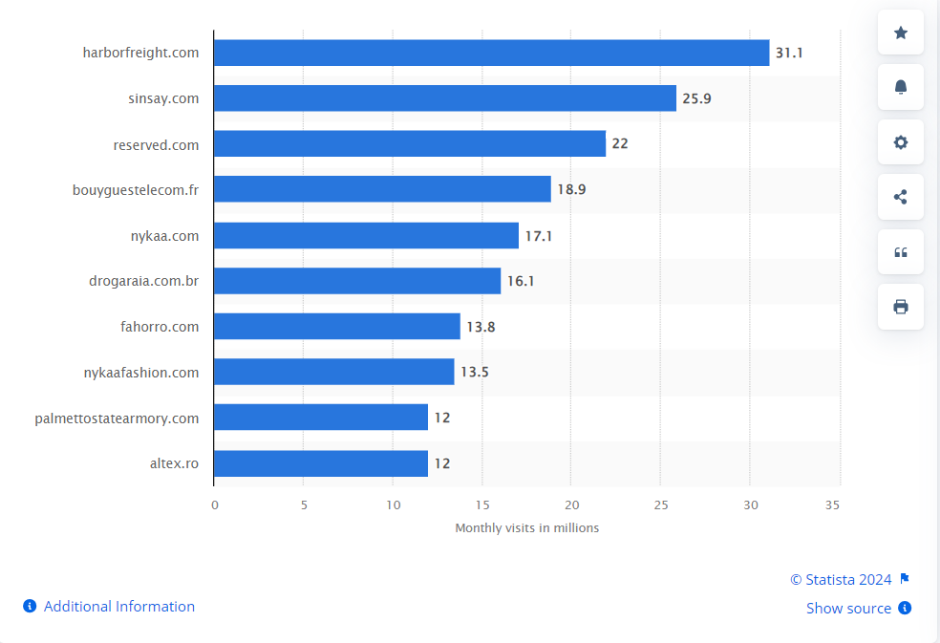Introduction
When considering building an e-commerce store, selecting the most suitable platform is imperative. With technology advancing rapidly, user-friendly platforms without the need for technical expertise are emerging. The choice often comes down to prioritizing either your own flexibility or user flexibility.
Magento remains a widely utilized platform in the contemporary world, and there are compelling reasons why it continues to be a top choice for businesses looking to create exceptional online stores. Here we have listed some of the best things about and why you should still consider using this platform.
Table of Contents
Flexibility and customization
Unlike many other platforms, Magento offers unparalleled flexibility and customization. As an open-source platform, it provides developers with the freedom to modify and extend its features extensively. This level of customization is particularly appealing for businesses with unique needs and specific branding requirements.
While other platforms offer customization through themes, custom coding, and plugins, the level of control over the underlying code is very limited compared to Magento.
Offers Scalability
It is renowned for its ability to handle large and complex product catalogues, as well as high traffic volumes. This scalability makes it a top choice for medium- to large-sized businesses with ambitions for growth. Compared to some other platforms that may struggle with performance under heavy loads, Magento shines in its capacity to grow alongside a business’s expanding needs.
Community and Support
The Magento community is a vast ecosystem of developers and users, offering a wealth of resources, plugins, and extensions. This active community ensures that businesses have access to support, troubleshooting assistance, and a wide range of add-ons to enhance their e-commerce stores. In contrast, some other platforms may not have as robust a community or as many readily available extensions.
Others also have a strong community, but their ecosystem of themes and apps may not be as extensive as Magento’s. On the other hand, Magento has a vast community of Magento-certified developers, users, and resources.
Feature-Rich
It comes equipped with an extensive features crucial for successful e-commerce operations. These include multi-store management, mobile commerce capabilities, advanced search functionalities, and robust product management and pricing tools. With this platform businesses are able to freely select the hosted platform of their choice without sticking with one hosting unlike other platforms and can even leverage cloud computing technology.
The argument that raises, Magento needs for third-party integrations for tracking is a valid point. While other platforms may require additional plugins or modules to achieve similar functionality, It’s crucial to understand that everything cannot be achieved with a simple drag-and-drop. It often requires a deeper understanding of the platform and coding knowledge to fully leverage its capabilities.
In built SEO-Friendly Features
It was designed with search engine optimization best practices in mind. Its features, such as search engine-friendly URLs, sitemaps, and layered navigation, make it easier for businesses to optimize their online stores for higher search engine rankings. This focus on SEO sets Magento apart from some other platforms that may not offer as many built-in tools for improving search visibility.
Leading e-commerce websites built on Magneto as of December 2023, by monthly visits (in millions) –
In 2023, U.S. Harbor Freight’s Magento-built online store was the most visited, with 31.1 million monthly visits, followed by sinsay.com at 25.9 million visits.

Source – Statista
Internationalization
Operating on a global scale requires robust internationalization features, and Magento delivers. It offers strong support for multiple languages, currencies, and tax rates, making it easier for businesses to create localized experiences for customers worldwide. This international focus sets Magento apart from some other platforms that may not offer comprehensive internationalization capabilities.
Its imperative to have internationalization features in every platform but other having in a limited manner, but it’s flexibility in handling complex tax rules and diverse markets can be advantageous and businesses with extensive global operations may find Magento’s native capabilities more suited to their needs.
Think about the end user. Not your flexibility
As an e-commerce company, it’s crucial to prioritize the end-user experience and security over your ease of building the store. While some platforms may advertise ease of use and minimal technical expertise required, it’s essential to consider the long-term implications for both customers and the business. Magento’s security and customization capabilities can indeed be advantageous. The ability to tailor the store to specific branding and functionality needs not only enhances the user experience but also ensures a unique and memorable online presence and protects user data because the control is in our hands. It may be complex when compared to others, but in the end, it will be best for you and your user.
Disadvantages of Pre-built Templates
Pre-built templates on e-commerce platforms can limit unique branding and functionality, leading to a less distinctive online presence. They may lack customization options, making it challenging to meet specific design or user experience needs. Additionally, these templates can result in similar-looking stores across different businesses. Custom development might be necessary to overcome these limitations, potentially increasing costs and development time. And mainly, reliance on pre-built templates may restrict the ability to optimize for SEO and user engagement, impacting online visibility and conversion rates.
Multi-Channel Selling
For businesses looking to expand beyond their standalone e-commerce store, Magento supports multi-channel selling. This means integration with popular marketplaces like Amazon and eBay is seamless. Compared to platforms that may require third-party solutions or lack built-in multi-channel capabilities, Magento provides a comprehensive solution for managing sales across various channels from a single platform.
Magento’s open architecture allows for more customization and native feature integration options. Every other platform provides good multi-channel integration, but some features may require additional fees.
Prioritize User Security
Security is a top priority for any e-commerce business, and Magento takes this seriously. With regular security patches and updates, Magento ensures that its platform is equipped to handle potential vulnerabilities effectively. Being open-source allows for transparency in the code, which can lead to quicker identification and resolution of security issues. This commitment to security distinguishes Magento from some other platforms that may not have as rigorous security measures in place.
Every platform prioritizes security, not only Magento, but their security depends heavily on the hosting environment and the security practices of the user. While it can be secure with the right setup, Magento’s centralized security updates may provide more peace of mind.
Conclusion
While Magento excels in these areas, it’s essential to note that the choice of e-commerce platform ultimately depends on the specific needs, budget, and goals of a business. Platforms like Shopify, WooCommerce, and BigCommerce also have their strengths and may be more suitable for certain businesses based on factors such as ease of use, cost-effectiveness, and the level of technical expertise available. But if you want control and power over store then Magento suits you best.
Why Sparity?
Choose Sparity for your e-commerce needs because we focus on Magento, providing lots of options to make your online store unique. Our team consists of Magento-certified developers who help with customizing your store to match your brand and what you want. We offer good features and support to make sure your store runs smoothly, looks great, and ranks well in terms of SEO. We help you with migration, and the recent updates from FedEx and UPS, with Sparity, you get a powerful and special online store just for you.
FAQs
Why it is Right Time to Seize the Opportunity ?
DThe recent announcements from FedEx and UPS regarding the retirement of their SOAP web services will impact Magento users. Furthermore, the upcoming end of support for certain Magento versions, coupled with the release of 2.4.7 featuring enhanced security features, presents a prime opportunity for an upgrade. Read more
What are the Solutions for Magento users on FedEx and UPS SOAP Web Services retirement?
Transitioning from the SOAP API to the RESTful API offers a solution for the impending retirement of SOAP services by UPS and FedEx. Read more
What are the Magento 2.4.7 Version Upgrade Best Practices?
Prepare by backing up data and checking compatibility. Follow Magento’s Upgrade Plan Checklist. Post-upgrade, reindex, test, and optimize for seamless performance and functionality. Read more
What are the 3 methods to Upgrade Magento Version?
Upgrade manually, via Composer, and using the web set-up wizard. Elevate user engagement and boost your online store’s performance today. Click here to learn the step-by-step procedure for each method. Read more
How to choose a right Magento development company ?
Discover the top 10 factors to consider when choosing a Magento development company for your business. Make the right choice today. Read more














